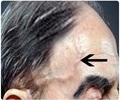- Coronary artery disease (CAD) causing heart attacks and cancer form the two major killer diseases worldwide
- Study finds that increasing leptin in pericytes stimulates growth of new blood vessels (angiogenesis) and helps in healing heart tissue damaged due to CAD.
- Blocking leptin production in pericytes can be used to treat cancer by preventing angiogenesis
Targeting Leptin Production By Pericytes For Heart Disease And Cancer Treatment
Both coronary artery disease and cancer continue to be the two biggest killers of the modern era. Research focusing on these two diseases has discovered several new treatment options that have improved patient survival and quality of life. However, scientists strive to develop newer and better cures for these diseases by exploring novel treatment targets as yet unexplored. The current study is one such effort that studies the role of pericytes and leptin in stimulating angiogenesis and whether targeting this process could be a possible treatment option in CAD and cancer. It was led by Paolo Madeddu, Professor of Experimental Cardiovascular Medicine from the School of Clinical Sciences.How Pericytes And Leptin Stimulate Angiogenesis – The Study
- The team found that pericytes produced 40-times more leptin when subject to low levels of oxygen, which continued until oxygen levels returned to normal.
- Increased leptin levels would increase formation of more blood vessels, thereby increasing blood flow and oxygen supply to the affected area..
- The research team has shown that by inducing the growth of new blood vessels, pericytes could potentially restore blood supply to damaged heart muscle after a heart attack.
- In addition to the above observations, the study shows that leptin has many important functions which encourage angiogenesis in areas where tissues are deprived of oxygen.
Role Of Angiogenesis In Cancer And Heart Attack
New vessel formation or angiogenesis occurs both in health and disease.- In coronary artery disease for instance, angiogenesis has a beneficial role by forming more blood vessels to restore blood flow and oxygen supply. Angiogenesis is also important in tissues undergoing healing and repair.
- On the other hand, in cancer, angiogenesis promotes tumor growth and spread of the tumor and is thus an undesirable process.
About Leptin Hormone
The hormone leptin was discovered in 1994 and secreted mainly by white adipose tissue. It functions as a satiety factor and increases metabolism and reduce appetite, thereby increasing energy expenditure and decreasing energy intake.However other tissues such as cardiomyocytes and vascular smooth muscle cells (VSMC), cerebral and coronary vessels have also been found to produce leptin. Several other functions have also been attributed to leptin other than its role in energy homeostasis, namely its role in blood pressure, heart muscle, blood vessel wall and angiogenesis.
Scope Of Current Study
In conclusion, the findings of the study may pave the way for novel and less invasive treatments for CAD in the future. Currently coronary artery bypass surgery a major invasive surgery with a prolonged recovery time remains the mainstay of CAD treatment.According to Barbara Harpham, Chief Executive of Heart Research UK, "This translational research project is a good example of research that aims to benefit patients as soon as possible. Professor Madeddu and the team have made some important new discoveries.
Understanding more about the processes involved may help pave the way for the development of new treatments for heart attacks which could replace coronary bypass operations."
References:
- The Role of Leptin in Cancer Pathogenesis - (The Role of Leptin in Cancer Pathogenesis)














